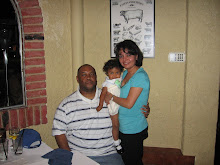Web 2.0 Review
Where will the next generation Web take libraries?
Fundamentals of librarianship from the past (before the Internet) have changed. Web 2.0 / Library 2.0 are now and here. It is time to take advantage of various technologies to enhance the library experience for both patrons and library staff. This will require a lot of work. But, if librarians want to remain relevant in the eyes of library patrons and people in general, we must become teachers in the world of navigating through information from both electronic and print sources.
Away from the “icebergs”
We can expand our information center (library) by creating access to information (computer labs) and purchasing more general materials for patron use. Thanks to Mcnaughton, we have the capacity to lease popular materials and determine later, if we need to purchase materials based on popularity and/or relevancy.
Teaching both Library 2.0 and basic computer skills is a must for any library. Patrons would have the opportunity to be taught and it is time that we provide.
Every library needs a theme to bring about uniqueness to the setting. Of course, especially in slow economic times, libraries become more of a destination. Finding a theme that brings people to the library will show relevancy of place to those that question the need for libraries in the future.
Possible Themes include: Local History, Ethnic and Cultural Diversity, Seniors and Careers and Job Placement. Libraries and librarians can utilize Web 2.0 resources to develop programs to benefit library patrons. I will talk about this subject later.
Into a new world of librarianship
After reviewing the article about the new world of librarianship, I drew one conclusion to Web 2.0 / Library 2.0, “please don’t forget the basics”. Sometimes people are drawn into a candy store, because of the many treats there are available. Library 2.0 is like a new set of candy treats and there is so much, there is no stopping trying them all. However, without trying one at a time and enjoying the favor, then no one knows if anything is really good. Or, if everything is so good, when do we pick just one.
Once again, the fundamentals of libraries have changed, but one basic principle remains, finding a good book or finding information that support our needs. Find the Library 2.0 resources that fit your patrons’ needs and don’t forget that the basic library skills using technology and the internet will always needed to be taught. Most library patrons are limited in their knowledge of finding information. And, to add various resources for information usage via the Internet would be extremely complicated. Teaching basics skills to patrons is absolutely needed, in order to expand into the participation of Library 2.0 between librarians and patrons.
Build new services with Web 2.0 technologies
OCLC has come a long way. Actually, my library staff showed me the new web based World Cat and I must say, “it’s beautiful”. To here that OCLC is joining working with Web 2.0 technologies is great. OCLC is a fundamental aspect of librarianship and their willingness to incorporate the library patron in organizing information is incredible. I remember talking to other librarians 10 years ago about the issues of organizing information. The amount of work it takes to properly organize information. I truly believe that we are in the next generation of information organization and information technology and I am glad that aspects of librarianship are connecting to the future. =)
Expose, expand, extend metadata using Web 2.0
Metadata is data about data. Confused? I wasn’t when I was in graduate school. Metadata was one of my favorite subjects in school. And now to hear the possibilities of metadata actually being utilized by libraries is the ultimate of library research in the future. Librarians and library patrons don’t even know how far we are going to go with metadata. Why is metadata so important? The vast amount of information needs to be organized for maximum results, easily obtainable for researchers and general library use. With Web 2.0, libraries around the world can interact and organize information and now with possible patron involvement, the time consuming effort of organizing information is greatly reduce. This is revolutionary!
Librarian escaping the “gatekeeper” syndrome and becoming “gate keeping facilitators” puts a smile on my face!
The future is now.
As I finish reading the last part of these articles, I am still asking the same question. How are we going to handle Web 3.0 / Library 3.0 and not understand or organize with standards any 2.0 applications? That is the challenge. Build foundations that support user needs with detail and uncomplicated instruction. Build a solid building and it can stand for 1,000+ years or watch it crumble with one brisk wind. It is now up to us librarians, library staff and others to advance the education of finding information or we will never advance as a society.


